Golden Sun
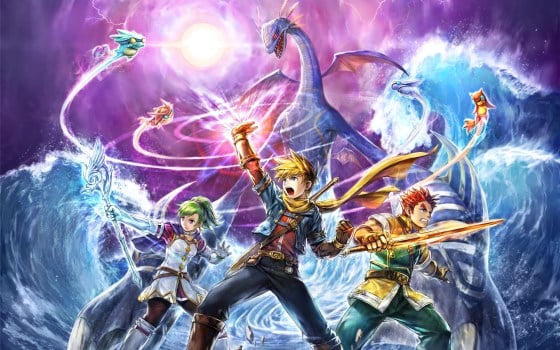
Nintendo makes a wide array of games in many different genres, and Golden Sun was one of the company’s biggest forays into straight up JRPG. The series started on Game Boy Advance with the first Golden Sun released in 2001, and featured a traditional turn-based battle system focused on party mechanics. One of the more unique features of the game revolved around elemental creatures known as Djinns, which you could capture and assign to each of your party members. These creatures would provide stat boosts as well as unique elemental abilities, both key to winning in battle. The main cast could also use a mysterious magical power called Psynergy, vital in both battle and puzzle solving.
The games were well loved for their strong ensemble cast and fascinating main plots that revolved around the world and its elements. Golden Sun hit at the start of a huge wave of massive handheld RPGs, when the Game Boy Advance became a hotbed for the genre. A sequel called Golden Sun: The Lost Age was released in 2003, with a DS title called Golden Age: Dark Dawn finally bringing the series back around in 2010. Since then, we’ve seen absolutely nothing from Golden Sun.
The Switch is going to need some serious exclusives to attract attention to itself, and there’s no better way to do that than with a giant sprawling RPG. Nintendo could fill a gap in their lineup with a new Golden Sun, bringing on another RPG series to join the likes of the Xenoblade games. The series only ever saw handheld entries, and the development team behind the Golden Sun games, Camelot Software, has been tasked with working on Mario Tennis titles since 2010. Nintendo’s new platform could be the perfect chance to finally realize Golden Sun’s full potential.
Camelot did a great job with characters and world building on handheld, it’s exciting to think of what they could really do with brand new hardware. In the wake of successes like Final Fantasy XV and Persona 5 in Japan, Nintendo stands to carve some space in the RPG scene if they take advantage of a dormant series like Golden Sun.
F-Zero
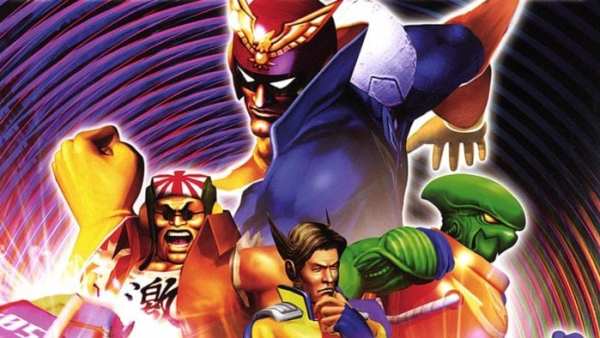
It’s been far too long since we’ve seen Captain Falcon outside of a Super Smash Bros. game. The last release in the series was all the way back in 2004, with F-Zero Climax on the Game Boy Advance. Despite its recent absence, the series always brought something you couldn’t get in any other Nintendo game: a high-octane, blisteringly fast racing experience in a futuristic sci-fi setting.
F-Zero focuses on the F-Zero Grand Prix, a tournament joining people from across the universe. Over the years, the series has amassed over 40 different racers, who each have their own background and unique F-Zero ship.
There are few racing games that truly capture the feeling of speed and momentum that F-Zero does, as you blaze across floating racetracks, and over different planets and landscapes. Aside from the usual Mario Kart entry, Nintendo doesn’t really have a lot in the way of racing games. With the increased power of the Switch, there’s a prime opportunity to bring back F-Zero and diversify Nintendo’s lineup.
The F-Zero series’ influence can even be seen as recently as the Wii U, with the release of Fast Racing Neo. Shin’en Multimedia’s title turned out to be the closest thing we’ve seen to an F-Zero game in years. It featured futuristic racers and tracks, along with gorgeous visuals and that same level of speed we’d seen in F-Zero. Nintendo could use Fast Racing Neo as a template for a new F-Zero entry, and there’s no reason they couldn’t even bring on Shin’en Multimedia to help develop.
All of the pieces seem to be in place for F-Zero’s return; fan acclaim, updated technology, a development team. Hopefully Nintendo takes advantage of these opportunities, and finally gives Captain Falcon his time in the limelight once more.
Metroid Prime
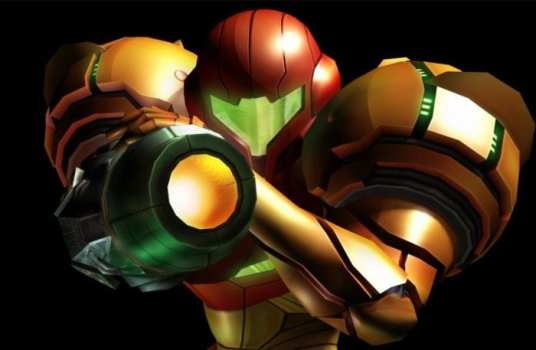
Yes, 2016 did see the release of a new Metroid game with Federation Force, but the last time we got to step into the shoes of Samus Aran was all the way back in 2010 with Metroid Other M.
For years, fans have been clamoring for a new Metroid, either 2D or 3D, and Federation Force just wasn’t enough to satisfy that. Retro Studios did a brilliant job of transitioning the series to 3D with Metroid Prime on Game Cube, creating one of the most unique and atmospheric shooters we’d ever seen. Since then, the studio has also gone on to work their charm with the Donkey Kong Country series, bringing us two brand new titles. Retro has definitely become a staple developer for Nintendo, and giving them free reign to make a new Metroid game on the Switch seems like a no-brainer.
2017 is a big year for Nintendo, with the monumental 30th anniversary of The Legend of Zelda. However, it shouldn’t be forgotten that Metroid is also celebrating its impressive 30th as well. We know Retro Studios has been working on an unannounced title, but so far we haven’t had any indication of what that might be. Samus remains one of Nintendo’s most popular characters, and a video game icon to this day. Bringing the bounty hunter back with a huge release on the Switch would be the perfect anniversary celebration.
Custom Robo
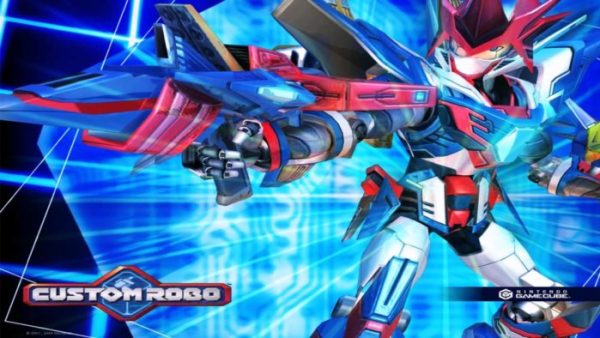
Custom Robo is definitely one of the lesser known series published by Nintendo, but like you’d expect, it has its own unique charm. The series started back on the Nintendo 64, and its most recent release was Custom Robo Arena on the Nintendo DS. Each game has you following a storyline while collecting different pieces of robot figures, and then using those to build a robot to battle it out with others in a virtual arena. It’s a similar concept to the recent anime, Gundam Build Fighters, that allows for a ton of customization.
There’s definitely an anime vibe in Custom Robo games, and entries like the one on Game Cube, simply titled “Custom Robo,” always leaned into the anime style and tropes. There’s a lot of unrealized potential with the Custom Robo series as well, especially since the advent of online gaming. A new entry could see players battling it out in online arenas, and trading different figures and parts. This seems even more appealing when you consider the Switch’s portable capabilities, and how you might be able to experience co-op or interactivity between systems.
There’s definitely a niche to be filled with games that have a goofy tone mixed with elements of Japanese culture. We’ve seen the success of Yo-Kai Watch and to an extent Tokyo Mirage Sessions, and Custom Robo could be another piece of that. The 3DS even saw another title that had a similar concept to the series, with the video game adaption of the anime LBX (Little Battler’s Experience).
Many of Nintendo’s experiences now focus on cooperative play and social experiences, something that Custom Robo could fit to a tee, while also providing a fun anime style single player.
Advance Wars
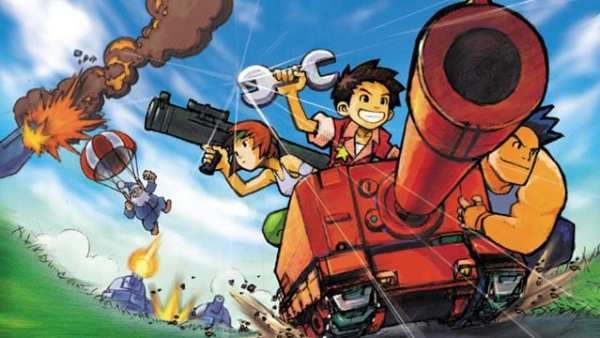
If anything shows the need for the return of Advance Wars, it’s the recent success of the Fire Emblem series. Intelligent Systems may be best known for their tactical fantasy series, but Advance Wars deserves just as much of a mention. It’s actually a subseries of Nintendo’s larger “Wars” series that started on the Famicom with the aptly titled Famicom Wars, then moved to Game Boy, before Game Boy Advance.
Where Fire Emblem gave you special “hero” type of units who each have a personality and particular skill, Advance Wars focuses much more on army-against-army combat. Character personality is instead given to COs (Commanding Officers,) who lead each army. You choose a CO at the beginning of each battle, and each one has special strengths and abilities to use. The core gameplay revolves around capturing different buildings on the map, building units, and destroying your opponents’ armies.
While Fire Emblem has stayed primarily on 3DS, with the focus moving to Switch, there’s a world of possibilities that open up. As Advance Wars only ever made it to Game Boy Advance and DS, we’ve never actually had a full 3D entry. Rendering the units of the original games in a brand new entry or remake could channel nostalgia while introducing the series to a whole new group of fans.
The other option is to try something entirely new with Advance Wars. Each of the four entries in the series were very good about introducing new gameplay ideas, and the Switch could surely do the same. Maybe we see some combination of tactical strategy and RTS? With Intelligent Systems at the helm, anything could be possible. The internet connection and portability of the new system also opens up possibilities for vs. play, and maybe on some massive battlefields.
Fire Emblem made a big comeback with Fire Emblem Awakening, becoming one of Nintendo’s primary franchises. We haven’t seen an Advance Wars game since Days of Ruin in 2008, so it’s about time we get another crack at leading an our army into battle again.
